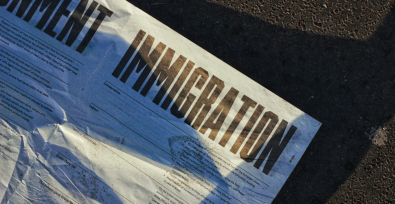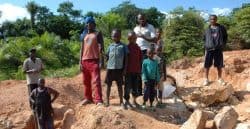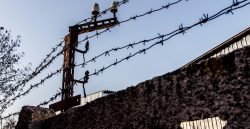In a move sending shockwaves across the global anti-trafficking sector, the US government has terminated 69 US international programs addressing child labor, forced labor, and human trafficking. At the same time, the government is also ordering domestic agencies to erase references to trafficking victims’ race, immigration status, and LGBTQ+ identity.
Decades of progress at risk
The funding cuts will immediately end over $500 million in US Department of Labor grants through its Bureau of International Labor Affairs. This move terminates work across 40 countries in sectors from fishing and agriculture to electronics. In Honduras, a single $13 million grant had helped over 6,000 children access education and trained hundreds of labor inspectors. Now that’s gone.
The Guardian reports,
John Clark, a Trump-appointed official, in the email justified the cuts by citing a ‘lack of alignment with agency priorities and national interest’. The department’s spokesperson, Courtney Parella, echoed this sentiment, telling the Post that the administration wants to prioritize ‘investments in the American workforce.’
The ILO reports that child labor traps 160 million children worldwide, and minors make up nearly 40% of trafficking victims globally. The US government’s abrupt withdrawal from international anti-trafficking efforts raises concerns that these numbers will grow.
Censorship threatens victims at home
The administration has also launched a domestic purge of DEI (diversity, equity, and inclusion) language from anti-trafficking efforts—with troubling implications. The government has ordered agencies and federally funded nonprofits, including major partners like the National Center for Missing and Exploited Children, to remove all references to race, LGBTQ+ identity, immigration status, and even the word “vulnerable” from websites, training materials, and grant applications—or risk losing funding.
The Guardian reports,
Traffickers often deliberately target victims from marginalized demographics they believe are less likely to report them. In Alfaro’s case, he was trafficked as a minor by a man now serving a 30-year sentence who specifically targeted gay teenagers from the Latino community.
“It was known to him that Latino males who were gay would be basically rejected from their families, and so they would be in an even more vulnerable place,” says Alfaro.
A gift to traffickers
Alfaro believes,
“It’s going to further stigmatize and also push everything underground. This is going to benefit traffickers. When you are further marginalizing and oppressing vulnerable groups, the response is going to be more homophobia, more transphobia, more racism—which then is going to create more vulnerabilities for those populations.”
Freedom United has worked with Jose Alfaro in the past to raise awareness of trafficking’s disproportionate impact on LGBTQ+ communities.
Traffickers intentionally target people they know law enforcement is less likely to believe, support, or prioritize. In King County, Washington, for example, 84% of child sex trafficking victims are Black — yet such statistics may no longer appear in future government reports. LGBTQ+ youth, children in foster care, undocumented migrants — all face heightened risks and are now being erased from public-facing materials and internal data systems alike.
Vulnerable populations at greater risk than before
The administration has also told nonprofits that it is prioritizing funding for conservative Christian groups aligned with its new guidelines. The government now allows groups that reportedly promote conversion therapy or reject LGBTQ+ identities to receive federal anti-trafficking grants, while excluding organizations that support vulnerable survivors.
At a time when global trafficking networks are growing more sophisticated, and data shows marginalized communities are at highest risk, the US is turning its back on the very populations most in need of protection.
Freedom United is calling on the US government to restore international and domestic anti-trafficking programs, and to center the voices and needs of survivors—not erase them.







Freedom United is interested in hearing from our community and welcomes relevant, informed comments, advice, and insights that advance the conversation around our campaigns and advocacy. We value inclusivity and respect within our community. To be approved, your comments should be civil.